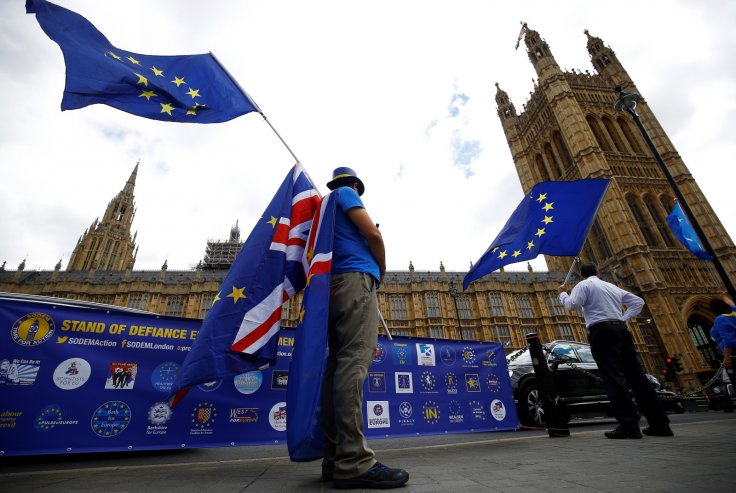
Prime Minister Theresa May's Brexit deal can be passed by the British parliament if the European Union provides clarification that the Northern Irish "backstop" will be temporary, foreign minister Jeremy Hunt said on Friday.
The backstop is an insurance policy designed to prevent the return of border checks between Ireland, an EU member, and British-ruled Northern Ireland. It is proving the biggest obstacle to a divorce deal between Britain and the EU.
May pulled a vote on her divorce deal earlier this month after admitting that parliament would reject it. MPs are set to discuss the agreement again next month, with a vote in the week starting Jan. 14.
Parliament is deeply divided, with both supporters and opponents of Brexit opposed to May's deal, which seeks to maintain close ties with the EU.
Britain is due to leave the bloc on March 29 and the impasse has increased the chances of a no deal Brexit and led to growing calls for a second referendum.
Hunt said May's withdrawal agreement could be passed by MPs if the EU made clear that the Irish "backstop" would be time-limited.
Critics fear the backstop will trap Britain in a customs union with the EU indefinitely, while European leaders have said they would not renegotiate the treaty.
"If it is temporary, then parliament can live with that," Hunt told BBC radio. "We can get this (the deal) through, absolutely can."
If May's deal fails, senior ministers are themselves split on what should happen. Some suggest that another referendum should be considered, while others, including Hunt, favor a "managed" no-deal Brexit. May herself has said neither option is viable.
Jeremy Corbyn, leader of the opposition Labour Party, said May should recall parliament early to allow a vote on her Brexit deal, and warned it was a matter of "when, not if" his party tried to force an election by proposing a vote of no-confidence in the government.
MPs are not due to return until Jan. 7 and Corbyn said the government was using the delay as a ploy to put pressure on parliament to accept her deal or risk a no-deal Brexit.
"What I suspect is that it's a completely cynical manoeuvre to run down the clock and offer MPs the choice of the devil or the deep blue sea," Corbyn said in an interview with the Independent newspaper.








